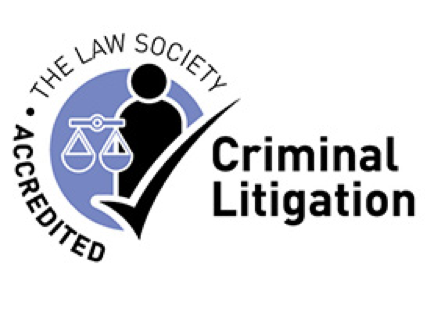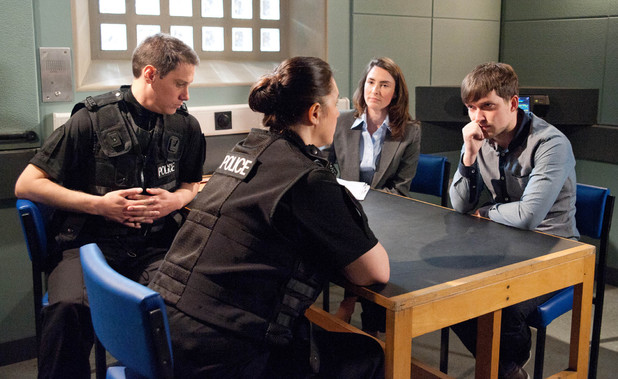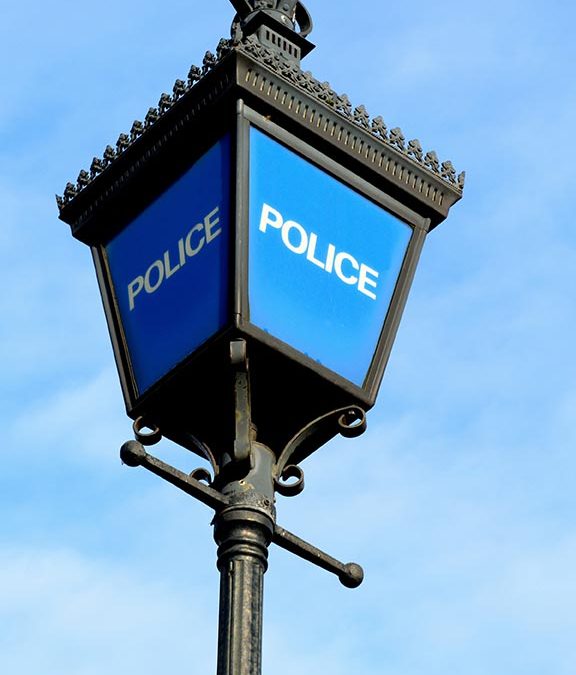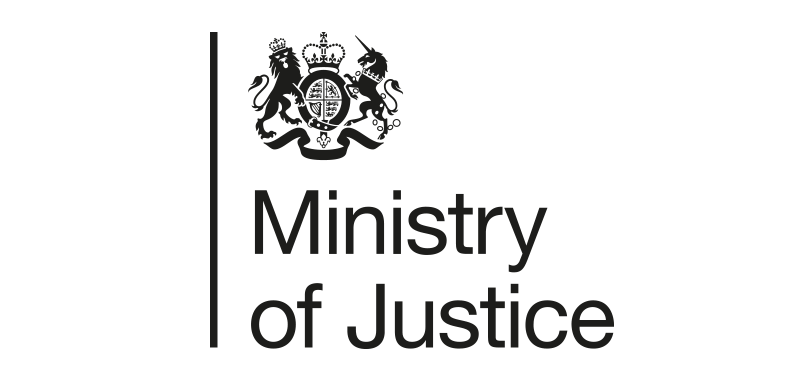Voluntary Interviews
This is a serious interview because the police suspect that you have committed an offence.
What you say, or do not say, in the interview can be used in court against you. This is why it is important to speak to a solicitor.
It is free to talk to a solicitor. The solicitor is independent of the police, and on your side. They can be in the interview with you.
It can help to talk to a solicitor before the interview. This is free. To avoid any delay in getting a solicitor you should let the police know before the interview that you want one.
Otherwise, you can use the search button on this website to choose a solicitor in your local area.
You must tell the police if you do not feel very well, or if you have any learning difficulties, mental health or autism.
___________________________________________________________________________________
Set out below is what happens before the interview – including your right of silence - during and after the interview.
There is information on how a solicitor can help you, and how to contact a solicitor.
There is also information on what an ‘appropriate adult’ is. All people interviewed by the police under 18 years must have an appropriate adult, and if you are an adult with learning difficulties, mental health or autism.
What is a voluntary interview?
Do I have to answer questions?
Do I need a lawyer?
How to find a lawyer?
The police will tell you why they want to interview you but they will often not give you any additional information. They might give this to your solicitor and this helps them to advise you on what to say, or not to say, in the police interview.
If you do not have a solicitor at the voluntary interview, you can still tell the police that you want to speak to one over the telephone.
It would not be right to assume from anything said to you by the police that asking for a solicitor will cause a delay. You can talk to a solicitor over the telephone and that solicitor will confirm how close they are and how soon they can attend your interview.
If you are under 18 years of age, the police will have to arrange for an appropriate adult to be in the interview with you. This can be a parent, carer, brother or sister or a friend, but they have to be over 18 years of age.
There is an appropriate adult service and you can have someone who is trained to help you as an appropriate adult in the voluntary interview.
The appropriate adult is there to protect your interests and to support, advise and assist you while being interviewed by the police. They will ensure that you understand your rights.
The appropriate adult is also with you to see that the police are acting properly, fairly and with respect for your rights and they will tell the police if they are not.
For more details of the role of the appropriate adult see the National Appropriate Adult Network’s guidance at: http://www.appropriateadult.org.uk/images/pdf/2018_quick_guide.pdf
You should tell the police if you are not feeling well, or if you have any physical or mental health problems. The police will need to arrange for an appropriate adult to help if you are an adult and have learning difficulties or mental health problems.
If you do not feel well enough to be interviewed, ask the officer if it would be possible to re-arrange the interview to another day. Alternatively, ask the police if you can speak to a doctor before the interview begins.
The police will caution you at the start of the interview by saying:
You do not have to say anything. But it may harm your defence if you do not mention when questioned something which you later rely on in court. Anything you do say may be given in evidence.
The caution is complicated because whether it is better to respond to police questions, or not, can depend on what evidence the police have against you.
Each case is different and this is why it is important to speak to a solicitor so that they can advise on what is best for you.
Every case is different and so it is not possible to give the same advice to everyone about what to do in the police interview. This is why it is important to speak to a solicitor so they can help you decide what to do.
You should not feel confused or frightened during the interview. If you are, ask to speak to your solicitor. You can speak to them in confidence at any time during the interview. If you want to speak to your solicitor just say so.
If you feel confused or frightened during the interview and do not have a solicitor, you can ask to speak to one over the telephone at any time. The police can arrange the call for you to speak to your own solicitor or the duty solicitor.
Tell the police officer if you do not understand any of the questions they ask you.
If you have an appropriate adult in the interview they have an important role in ensuring that the police act properly and fairly, particularly if a solicitor is not present.
The appropriate adult will help you to communicate with the police whilst respecting your right to say nothing in response to police questions.
Your solicitor and/or your appropriate adult should intervene if you are put under any pressure by the police during the interview.
There are five main options available to the police after the voluntary interview:
1. To do nothing and take no further action.
2. To ask you to accept a police caution, conditional caution or other out-of-court disposal.
3. To ask you to come back for another interview.
4. You receive a letter in the post from the police saying that your case is to be taken to court.
5. The Police can arrest and charge you.
It is important to speak to a solicitor before you accept a police caution or conditional caution because the solicitor will check that you have ‘admitted’ the offence, and that the police have a case against you, before a caution or conditional caution can be accepted. This is important because having a caution or a conditional caution leads to you having a criminal record. This can then cause problems for you in the future, particularly if you want to work with children or in finances, and it can also stop you visiting some countries, such as the US.
If the police are to take action against you, either by way of a caution or conditional caution, or take you to court, they have to take your fingerprints and obtain a sample of your DNA. The police generally have the power to take these samples without your consent. If you want to object to giving these samples, you should speak to a solicitor.
Speak to a solicitor if you are contacted again by the police, or if you are taken to court.
Your solicitor has been trained to help people when interviewed by the police about a suspected offence.
The police will usually provide information to your solicitor about what evidence they might have against you and this can be helpful when deciding what to do. This information isn’t always given to people who do not have a solicitor.
Your solicitor will advise you of what to say, or not to say, in the police interview. They will advise you about whether there is any evidence against you, how to raise a defence or an alibi, if appropriate. They are there to act in your best interests.
Your solicitor will protect you in the interview from the police putting you under pressure to respond to their questions, and to make sure that the questions you are asked are fair.
It is you who has to reply to police questions and not your solicitor. Your solicitor is not allowed to answer on your behalf but she or he will be there to help you.
Your solicitor will interrupt the police if she or he feels this is necessary.
An appropriate adult is there to protect your rights and look after your welfare if you are under 18 years old, or are vulnerable.
The appropriate adult is there to support you if you have difficulty in understanding or communicating effectively about legal issues. Or if you do not understand, or are confused about what is happening and the significance of the questions the police put to you.
The appropriate adult will support, advise and assist you.
They will check to see that the police are acting properly and fairly when interviewing you.
The appropriate adult will help you to communicate with the police, to make sure that you understand the questions, and that you respond to the questions appropriately, while recognising that you have a right not to respond, by making ‘no comment’.
It is your solicitor and not the appropriate adult who will give you legal advice.
If you do not want a solicitor, the appropriate adult will ask you why. Many people say no to a solicitor because they worry it will take longer, cost money or that duty solicitors work for the police. This is not correct.
An appropriate adult has the right to request that a solicitor be called if they consider that it is in your best interest – even if you said you didn’t want one.
For more information see guidance provided by the National Appropriate Adults Network at: http://www.appropriateadult.org.uk/images/pdf/2018_quick_guide.pdf
It can be extremely stressful to be interviewed by the police. If you are feeling anxious and want to talk to someone call the Samaritans at any time on 116 123 – this is a FREE number. You do not have to be suicidal to call them.
If you have difficulty understanding English, and/or need someone to sign – the police will arrange this for you free of charge.







